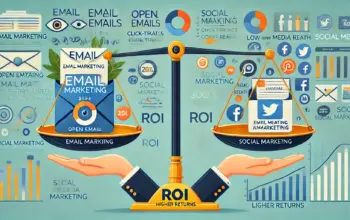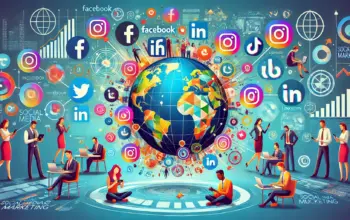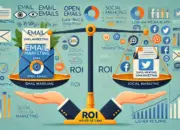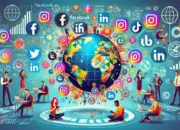Uzone.id — The metaverse refers to a 3D virtual world inhabited by avatars of real people. It is generally defined as a virtual community world where physical and digital realities are interconnected through avatars. People can meet, talk, and work in the metaverse using virtual reality headsets, augmented reality glasses, and additional applications.
This concept has been widely used in online games until it is considered the central theme in science fantasy films. Facebook’s CEO, Mark Zuckerberg, rebranded the company utilizing the metaverse concept by changing its name to Meta Platforms Inc., abbreviated as Meta. In addition to Meta, big technology companies such as Microsoft and Nvidia have begun adopting the metaverse concept into their corporate values.

Not a few argue that the metaverse is the first step toward realizing a more comprehensive and inclusive digital world. However, as with any new technology, there are always potential risks and drawbacks. One of them is how the metaverse can exacerbate the already existing risks associated with social media.
Anonymity in the Metaverse fuels rising cyberbullying cases
Everyone can be anyone in the metaverse, which means opening up the possibility of increasing cyberbullying and online harassment. People will feel safer committing crimes because no one recognizes them.

The interactive nature of the metaverse has also created a new form of cyberbullying: virtual attacks or vandalism. Cyber vandalism is a crime that aims to damage, destroy, or turn off data, computers, or networks.
One example of online vandalism is deliberately damaging websites or creating malware that damages electronic files. The impact can hinder performance and damage the business’s reputation.
Identity theft
Nothing is completely secure on the internet, not even the metaverse. Hackers use this platform to steal avatars’ personal information. Only a few metaverse owners are aware that their identity has been stolen. This accumulated data is commonly used for marketing purposes or sold to third parties.
Also, beware of social engineering attacks that are used for psychological manipulation tactics. These attacks usually trick users into revealing their personal information, which can lead to financial losses.
Metaverse profiles contain sensitive data
Metaverse profiles contain more sensitive information than a regular profile page. This includes personal information such as name, address, email, phone number, date again, and social media links.
Some metaverse platforms can even perform biometric scans such as facial or voice recognition for user authentication or avatar customization, where this data is sensitive and vulnerable to privacy issues.
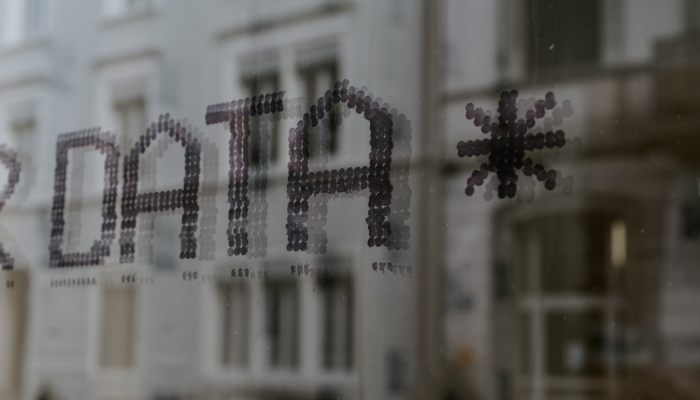
Not only that, the Metameverse also records a wide range of friend lists, groups, and social circles, as well as chat history that can be accessed by third parties if not adequately protected. And, if users participate in financial transactions and digital assets, the metaverse will record data on purchases, sales, ownership, and the use of sensitive cryptocurrencies.
This sensitive data opens up the possibility of identity theft and ransomware attacks. The metaverse can be an avenue for third parties to send ransomware attacks ready to encrypt personal files and block anyone who tries to access them.
The metaverse can allow hackers to send ransomware attacks ready to encrypt personal files and block anyone who tries to access them. From a single ransomware attack, victims will be urged to pay a certain amount for users to get their data back.
Too much fun, the metaverse can cause addiction
Just like social media, the metaverse world has an addictive nature. Entertainment elements, social interactions, and fun games make its users addicted. The fully immersive nature of virtual environments that can provide instant rewards and social validation and serve as a place of escape from the real world can lead to addictive behaviors.
Metaverse offers an exciting reality for users already stressed about their social and personal problems in the real world. Validating achievements through likes and followers makes this digital world even more fun. Users can even earn money by trading virtual assets such as NFTs.
However, overuse can lead to neglecting real-world responsibilities and decreased social interaction ability. The vulnerability of cyberbullying, social pressure, and the risk of addiction will have a significant impact on mental health, such as increased anxiety and depression.
Although the metaverse offers various exciting possibilities in the digital world and increases the number of users utilizing social media, it also has various risks when used carelessly. As the metaverse continues to grow, it is important to proactively address these issues to ensure that these new technologies are beneficial and bring overall benefits.
Writer: Aisyah Banowati




